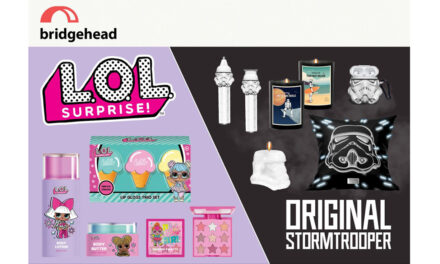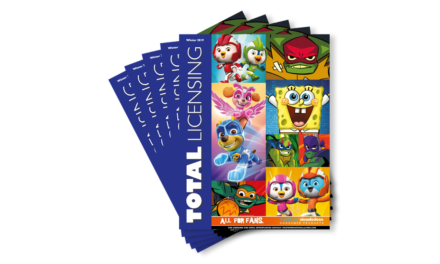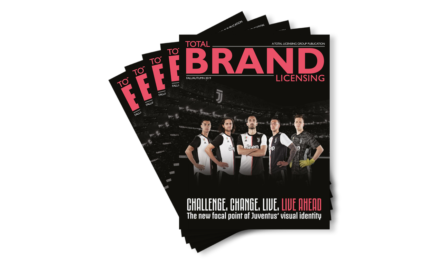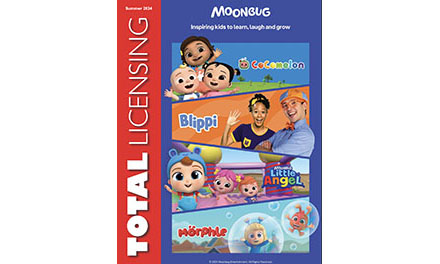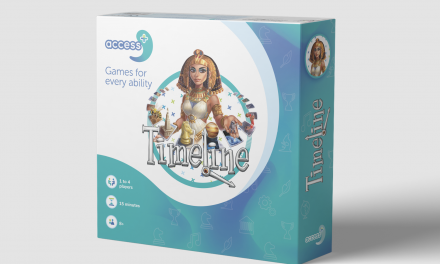
Interview: Reza Izad, Underscore Talent
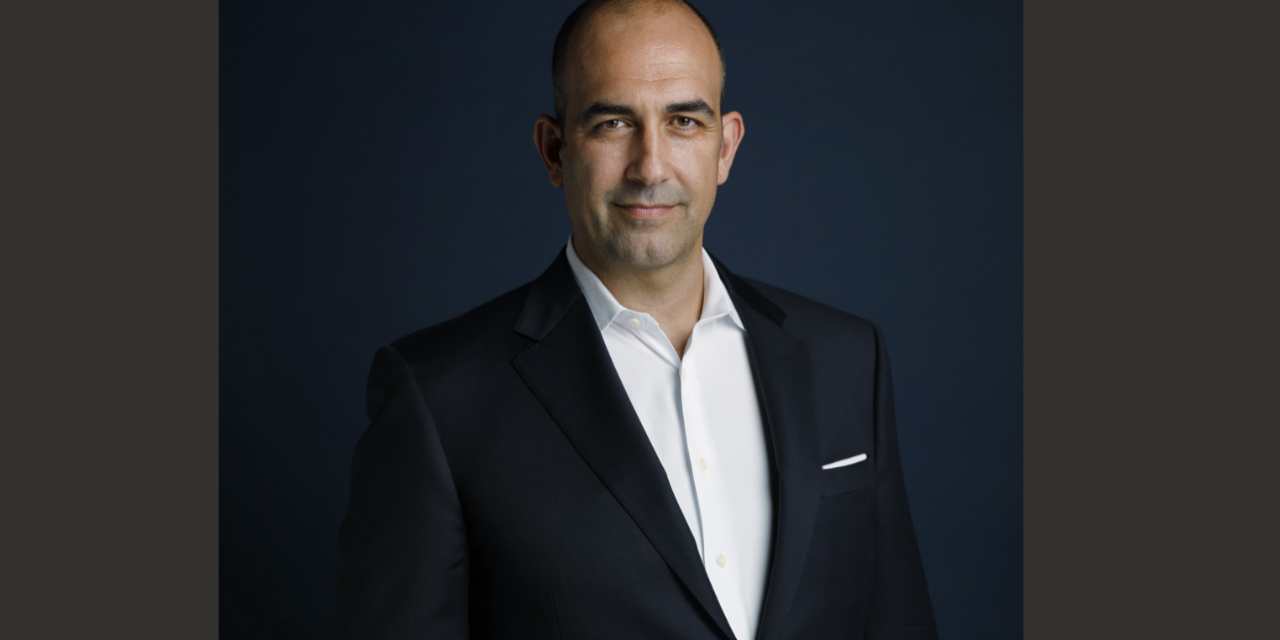
“Without fandom, there isn’t any licensing!” says Reza Izad, Co-CEO and Co-Founder Underscore Talent
Firstly, can you tell us more about Underscore Talent – and how it came into being?
Having spent a decade running Studio 71, one of the first global digital media companies to produce and distribute content, it was clear that there was an enormous gap in the then-emerging “creator economy” for proper management representation of digital creators. My partner Dan Weinstein and I saw the need for a company that would provide strategic career guidance to creators, enabling them to scale and monetize in new and creative ways. Together, we decided to leverage our unique skill sets and combine our experience from both sides of the negotiating table to create Underscore Talent, the leader in digital-first creator management.
Regarding you and the other founders – how did your backgrounds lead to this?
Between Dan and I, we have decades of experience in talent management, media creation, and working with top brands. I spent more than 20 years of my career developing award-winning brand integration for numerous Fortune 500 companies, in addition to representing an artist roster that included Eminem, Justin Timberlake, Linkin Park, Enrique Iglesias, and Alanis Morissette. Dan has been instrumental in pioneering digital artist representation. During his career, his client roster has included top creators’ names such as Rhett and Link, Lily Signh, The Fine Brothers, Vlad & Niki, iJustine and Freddie Wong. He has more than 30 television, film, and digital credits.
We founded Underscore Talent in 2021 during the pandemic and have built it into the leading next-generation talent management firm in the Creator Economy. Our company is rooted in the desire to help our clients define their brands and create winning strategies to maximize thriving, long-term careers. With an initial focus on lifestyle, beauty, fashion, gaming, and kids & family, Underscore Talent successfully launched sports and culinary divisions this summer. We also recently established Shorthand Studios, a cutting-edge digital production and distribution company.
Do you see yourselves as unique pioneers in the talent management firm arena?
Honestly, the same ideas and concepts that worked for Elvis Presley work today for leading YouTube and TikTok stars. The mediums have changed and so has the way people consume their entertainment. But the process of building a star, growing their brand and monetizing their opportunities is the same. So, while we work with creators who are setting the standards for today’s media and entertainment, we use proven methods to build their careers for the long haul.
I know you represent a lot of talents from digital platforms; how has that landscape changed over the past few years?
In the last four to five years, we have seen more platforms emerge and more opportunities for creators to make money. We created Underscore Talent as a company that specializes in all aspects of the modern creator economy that best serve our talent. While not every creator can excel on every platform, we have managers who specialize in sports, culinary, gaming, lifestyle, and more, giving our clients the ability to expand their brands and reach even wider audiences.
Knowing how to navigate the myriad of different options for our talent is important to our success. There are creators who make millions of dollars a year from advertising, some who make millions from licensing their brand, and others who do extremely well by being part of a vibrant subscription service like Patreon or OnlyFans. There is a world of diverse opportunities that are now part of every creator’s ecosystem and knowing how to either avoid the pitfalls or capitalize on those opportunities, as our team does, can be very lucrative for our clients.
You have worked with a far-reaching breadth of talent across the spectrum! How do you spot talent that you know will go far?
We identify talent in two basic ways. First, our years of experience and knowing what works allows us to follow a “trust our gut” mentality. We ask ourselves if the creator or their content makes us feel a certain “something,” and if that “something” we feel can help the creator grow and thrive in the long run. The second way we determine our clients is by using numbers in an expert way to determine if working with the talent makes good business sense and will lead to great success for them if we do it right.
It’s very important for our team to feel connected to our clients. If our managers believe in what our creatives are doing and are passionate about our clients’ chances of success, the trajectory of our journey together is that much stronger.
Tell us more about the licensing side of business—how are you finding this differs from the ‘traditional’ licensing programs of years gone by?
One challenge that licensors face when working with creators is the speed at which creators create content and the speed at which consumers move on. If there was a way to move more quickly in terms of how a product is created and how quickly it can be brought to market, sell-through rates would show significant increases.
For example, Spencer’s relationship with YouTuber Danny Duncan is an interesting model. They have created a hybrid deal that allows Spencer’s to be nimble with product trends in a way they could not before, by becoming the master licensee for anything his team at Killer Merch and Danny mutually approve. With their deal, Spencer’s not only gains exclusivity on a specific product, but also has the ability to create Danny Duncan products within their existing licensing program. This creates a wealth of opportunities for new products. It’s my understanding that Danny’s brand is the top seller in Spencer’s across most categories.
Each person/brand you represent must offer a unique opportunity for licensing, merchandising and monetization through very different means of expertise. How do you tailor your licensing programs to match your content and talents?
Fundamentally, brands and IPs direct the flow of opportunities through segmentation in the same space as creators. For example, culinary creators launch food IP, fashion creators launch clothing lines, and makeup creators launch makeup lines. Where it gets interesting is when a creator has a “secret” passion that does not fit into what they are known for in their industry. It takes a lot of work from the creator and their team to showcase this passion and position the creator in a credible, organic way to launch a brand or licensing program. But it can be a potential gold mine if it works.
A great example of this is when Selena Gomez entered the food space. Known as an actress and singer, having a popular makeup line is an organic fit. But her passion for food wasn’t known until she launched Selena+Chef on Max. Selena parlayed her personal passion into another revenue stream with content and licensed products and expanded her already massive audience even further.
Looking at the vast digital sphere, what do you see as being the next big thing, platform-wise?
While they’re not new, shoppable videos on TikTok Live, TikTok Shop, Youtube, and Instagram are here to stay, and they’re already having a game-changing impact. It’s going to be really interesting to see how these shoppable features grow and expand in 2024. We’ve only seen the tip of the iceberg of what’s possible. Each platform is taking a unique approach to how they approach the new technology and growth opportunities within the shopping vertical, so it will be interesting to watch what emerges and how brands and products can take advantage of new opportunities in the coming months and years.
How much does fandom drive what you do?
This is a good question. The bottom line is simple. Without fandom, there isn’t any licensing. For any creator to expand a brand’s reach, they must have some sort of fandom. However, not all creators have a similar fandom, and that is important to a licensing campaign. There are creators that have mastered publishing to an algorithm, which is not necessarily a true fan base. For a licensing brand to be successful, it needs to understand the science of fandom and assess if the creator’s passionate fan base is real or if the creator simply knows how to create content to play the algorithm, and that is the real name of the game. In my experience, if the creator does not have a truly loyal fanbase, the licensed product will not usually succeed.

